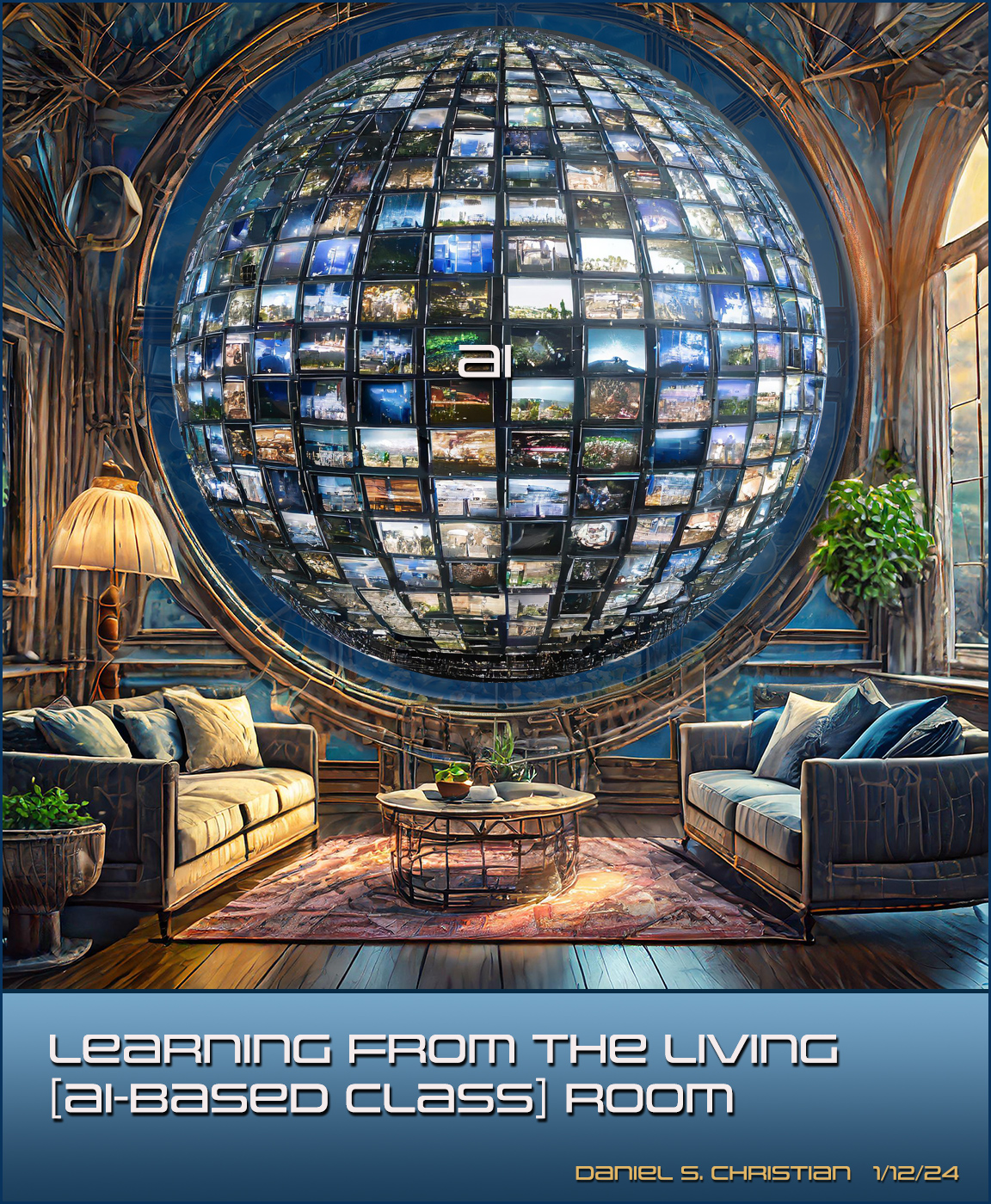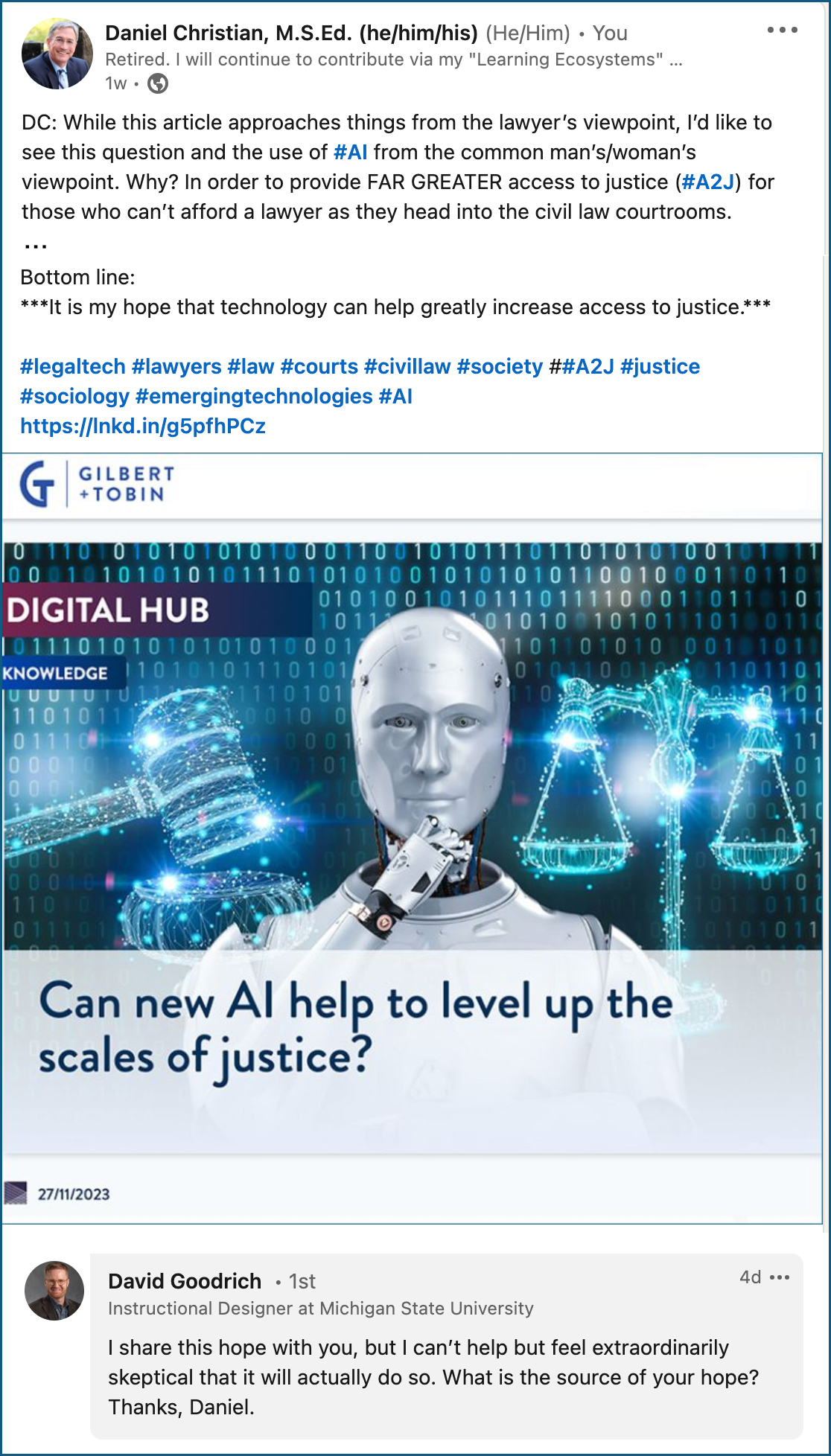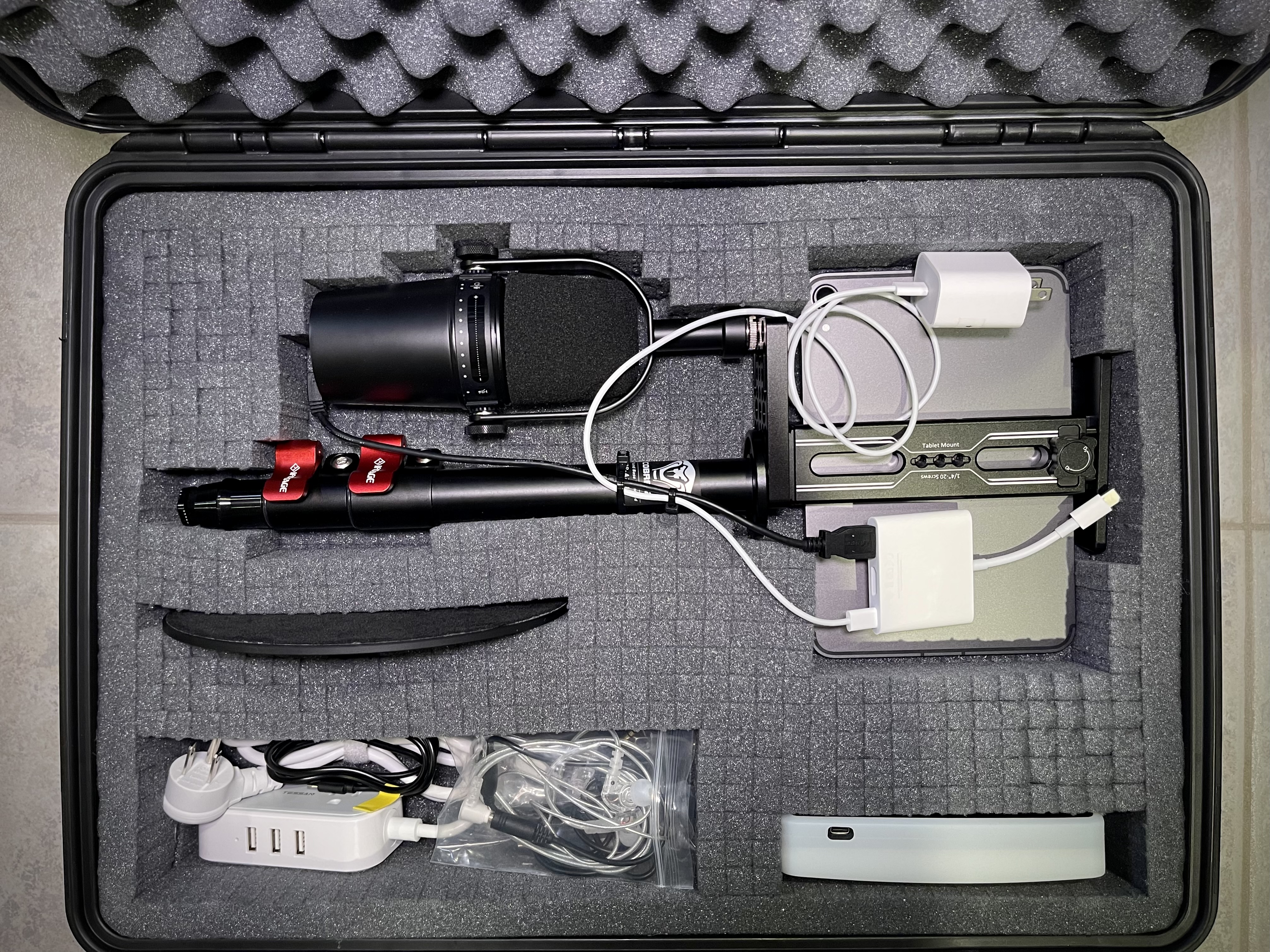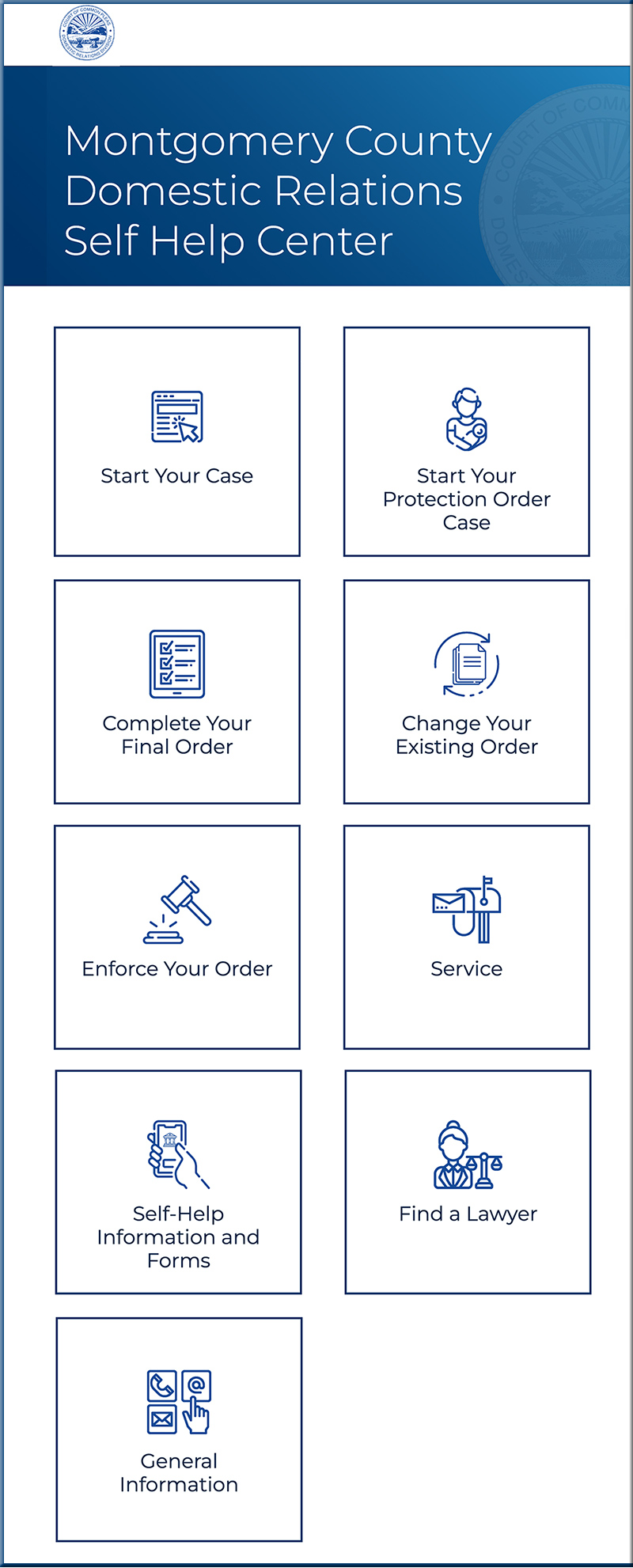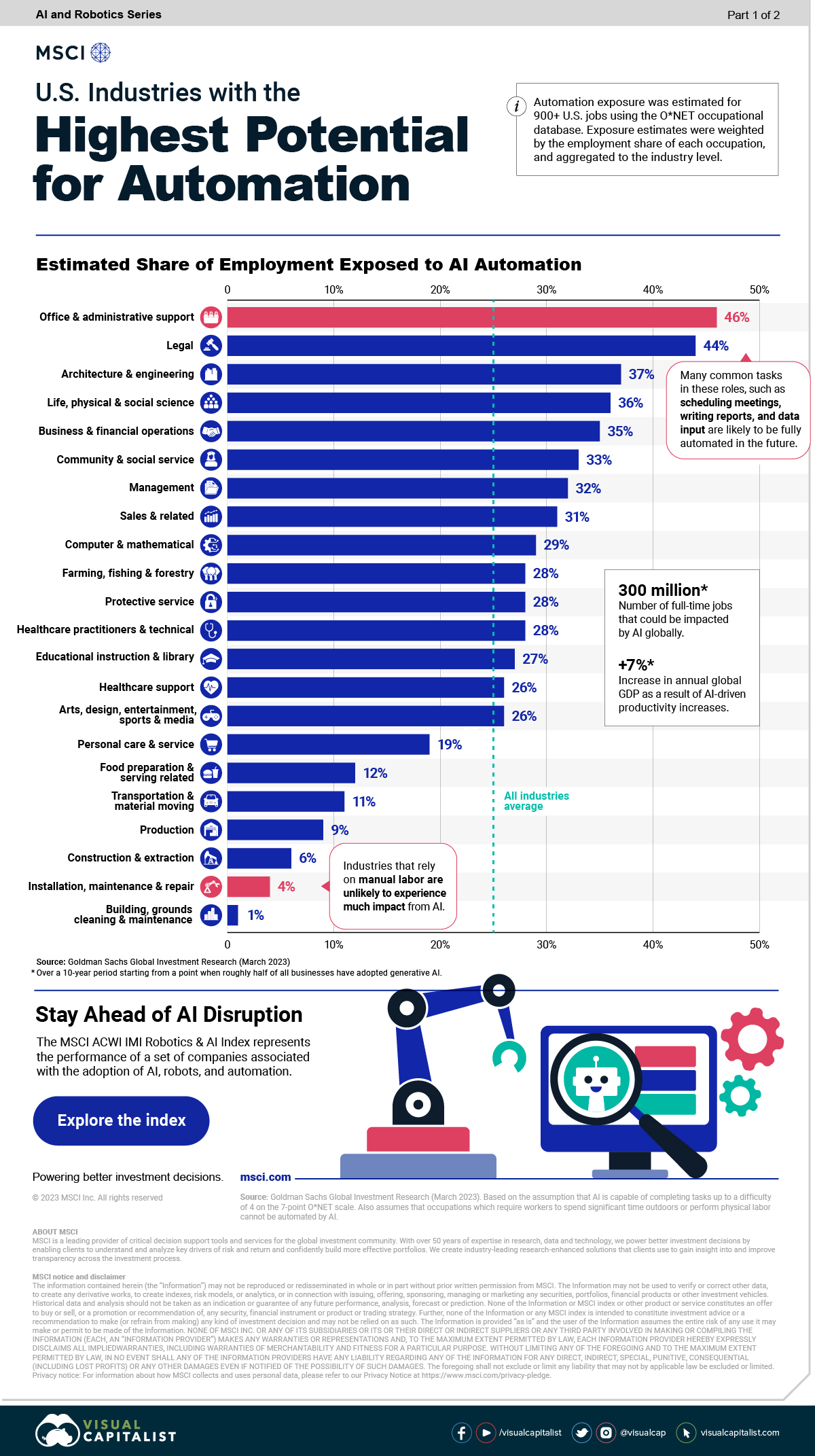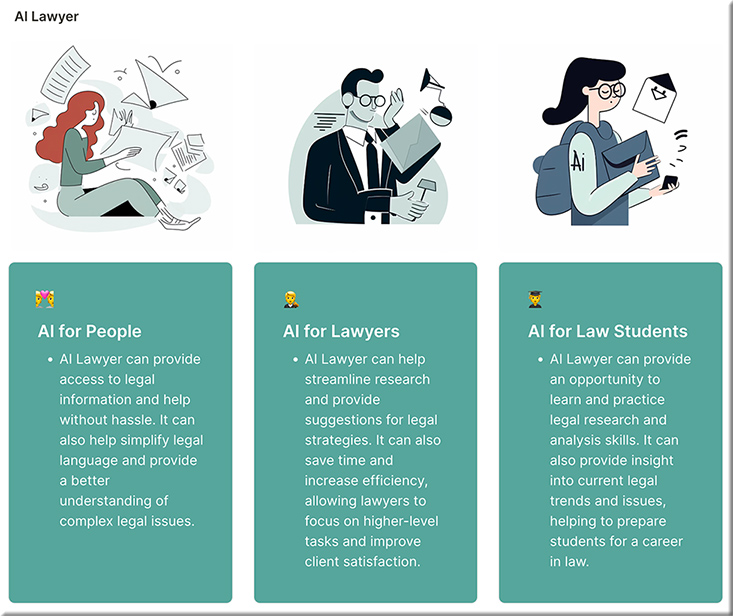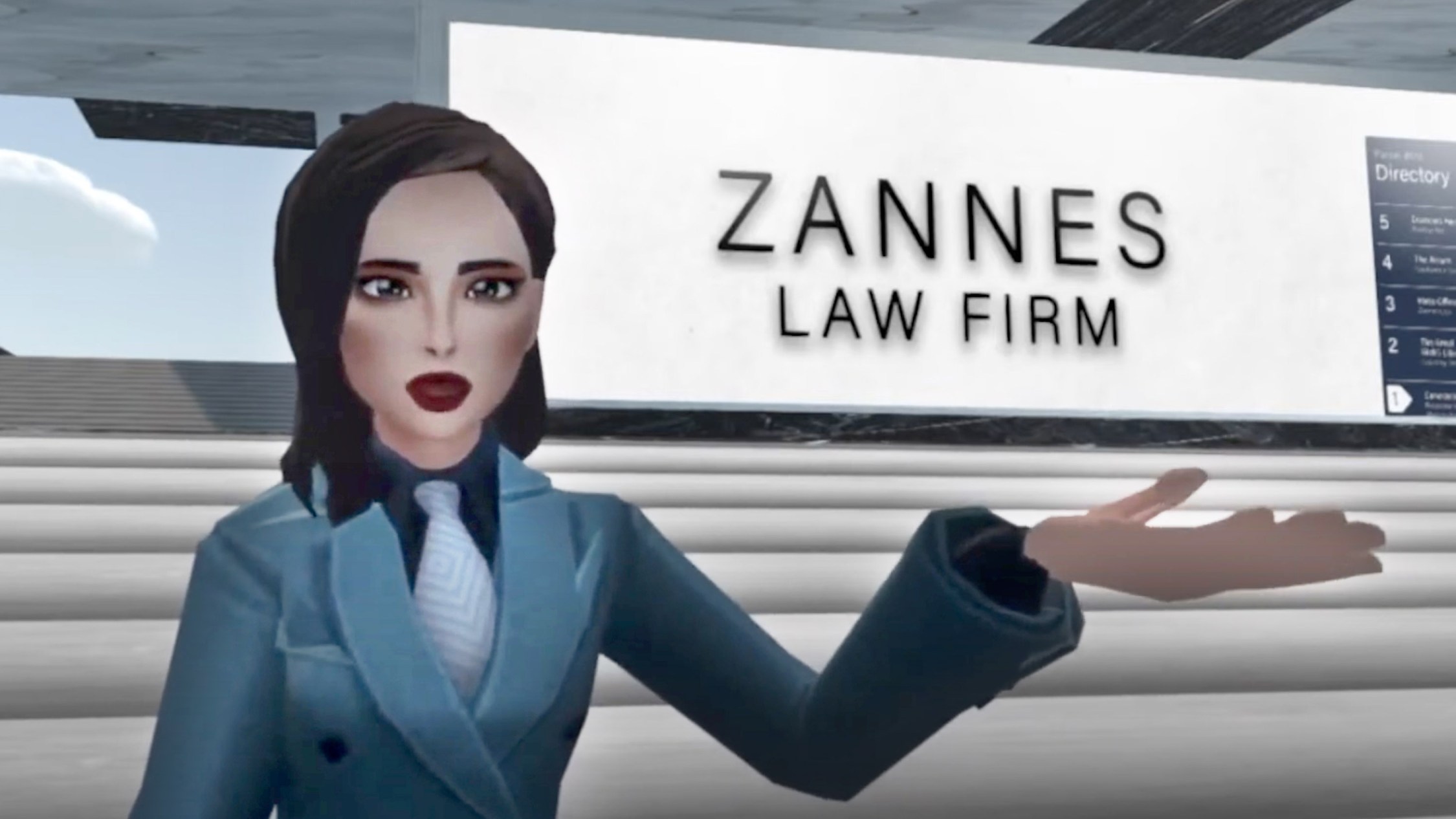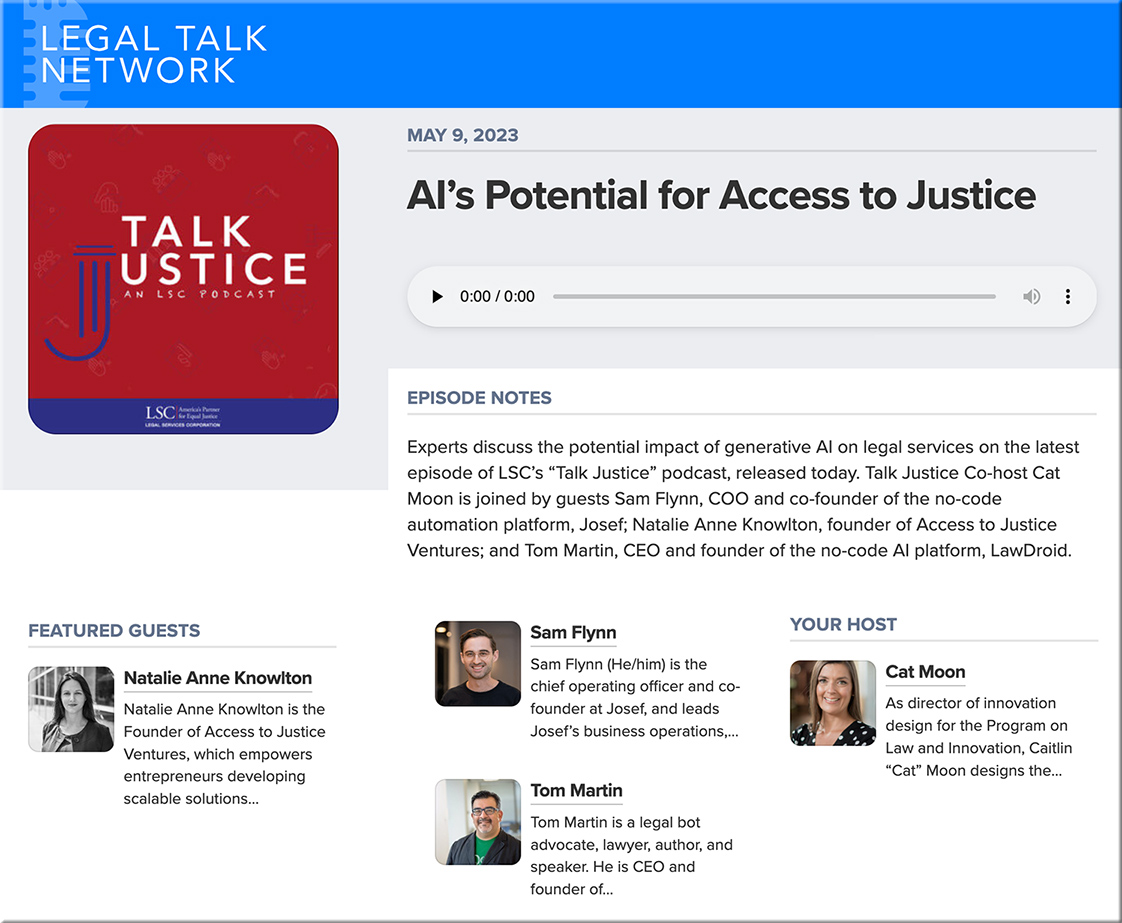My 40 Most-Read Blog Posts This Year Tell A Story Of A Legal Industry Consumed With Generative AI — from lawnext.com by Bob Ambrogi
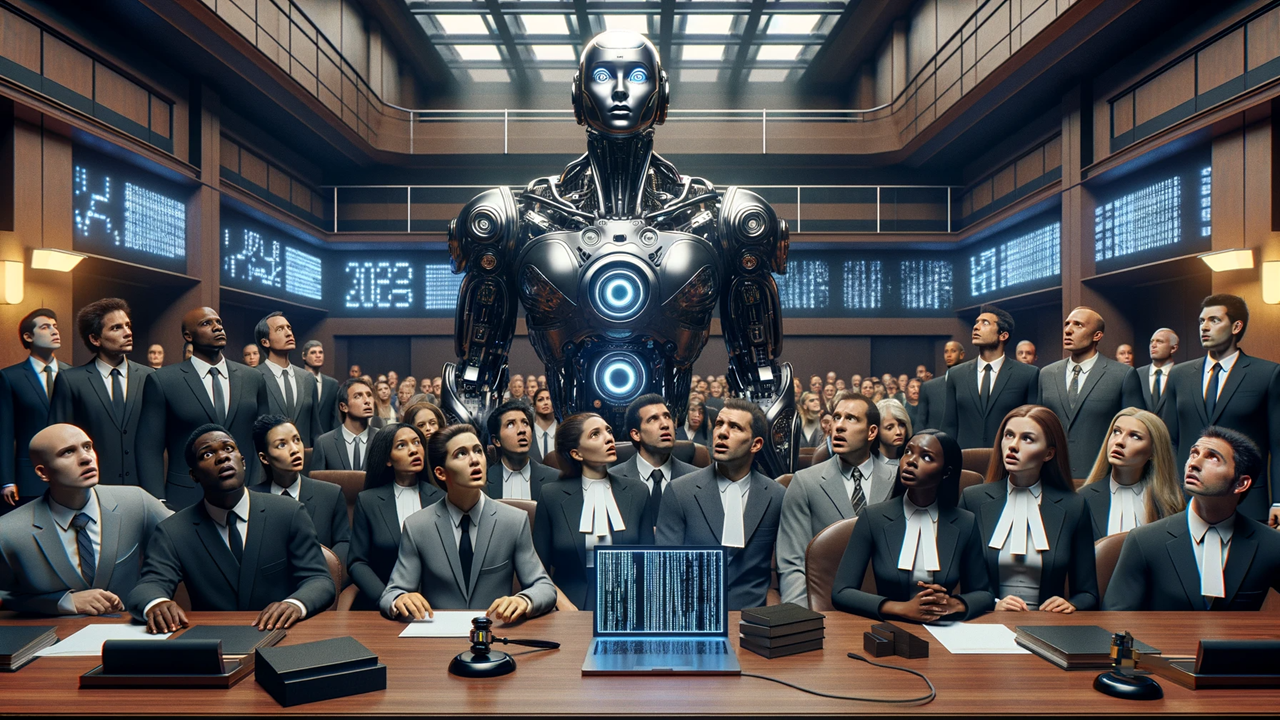
Look over this list of my blog posts that were most popular this year, and there is no doubt about the topic that most captivated the legal industry. Of my 40 most-read posts of 2023, 30 directly involved generative AI and others implicated it.
What I’m watching for in 2024 — from alexofftherecord.com by Alex Su
My view of the legal ecosystem, and why I’m going to pay close attention to generative AI, new Biglaw offerings, and the rise of “independent” attorneys
Today, instead of sharing my predictions about what’s coming to the legal industry, I’ll share where I think the most action will take place next year. In short, it’s (1) generative AI; (2) Biglaw firms adding low-cost capabilities; and (3) strong bench talent among independent attorneys. Before I get into why, I’ll share some observations on the past, and the trends I’m seeing take place right now.
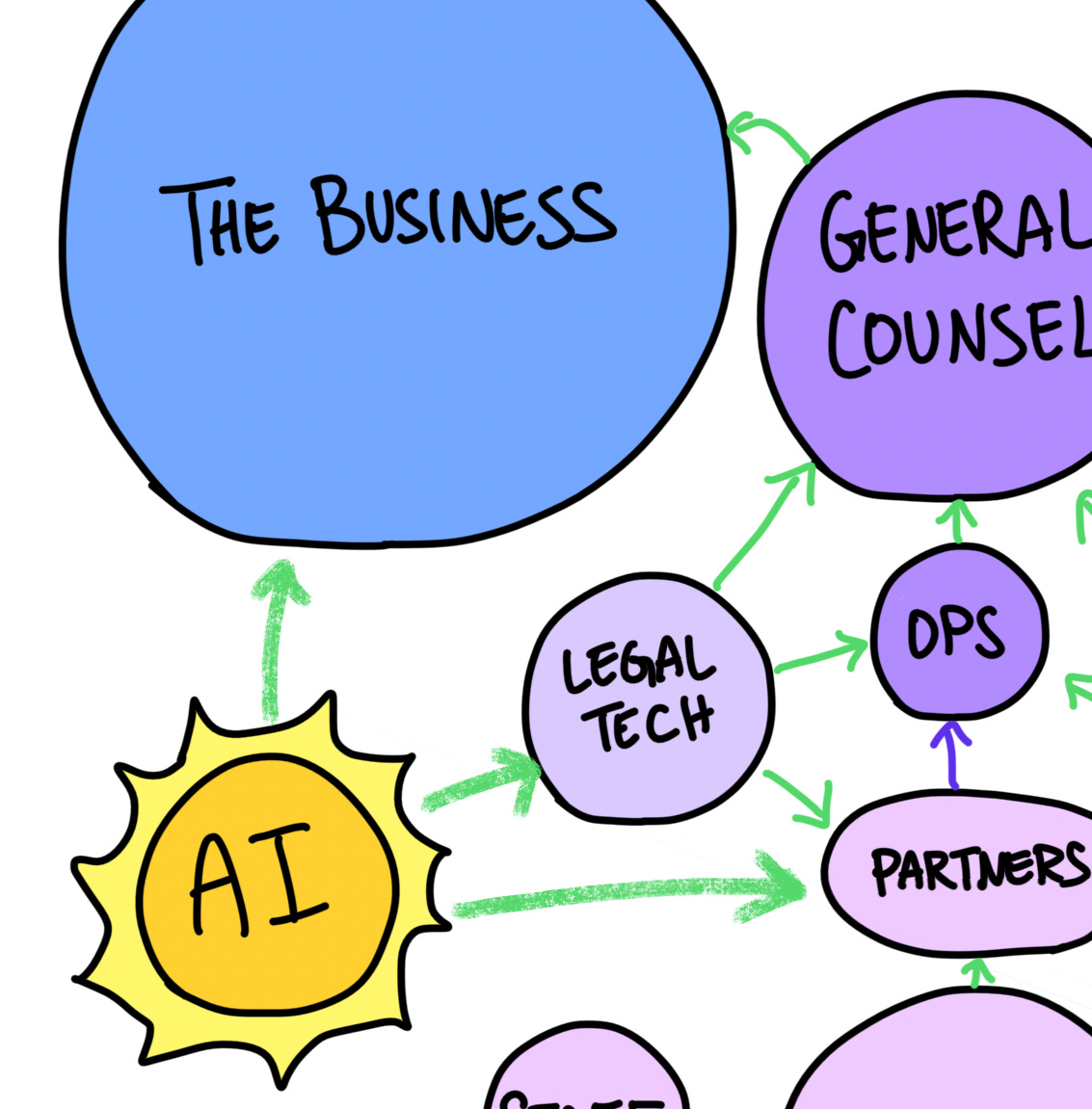
Navigating Ediscovery and AI in Legal Tech – 2023 Trends — from jdsupra.com
In 2023, the legal landscape has been significantly shaped by two key trends: the rapid evolution of Artificial Intelligence (AI) and the advancements in ediscovery. These developments have not only transformed legal processes but also presented new challenges and opportunities for legal professionals. As we delve into this first part of our series, we examine the top blogs that have been at the forefront of these trends. These articles offer a window into the current state of legal tech, providing invaluable insights into how these technological advances are reshaping the practice of law.
The Metaverse: A new dimension for legal services — from connections.nortonrosefulbright.com by Lena Haffner
Some of the topics mentioned include:
- Virtual law offices
- Enhanced client communication
- Virtual pitches
- Client education and workshops
- Virtual asset inspections and tours
- Enhanced due diligence
The Digital Era: How Technology is Changing the Way We Hire a Lawyer — from medium.com by Hire 4
In the fast-paced world of the digital era, technology is revolutionizing almost every aspect of our lives, and the legal field is no exception. The traditional process to hire a lawyer, once dominated by word-of-mouth referrals and physical law firm visits, is undergoing a transformation. This shift is not just changing how clients find and interact with legal professionals, but also how legal services are delivered and experienced. In this blog, we delve into the ways technology is reshaping the landscape of hiring a lawyer.
Finding The Right Virtual Assistant For Your Legal Practice — from forbes.com by Raquel Gomes
A virtual assistant can perform administrative tasks for a firm, from client communication and appointment scheduling to legal research, contract management and accounting. Delegating these tasks can be an effective way to free up lawyers to do what they do best. Based on my work with virtual assistants, here are some of the potential benefits and also tips on how you can find a VA who best fits the needs of your practice.
Addendum on 1/2/24:
YEAR IN REVIEW: The top legal technology trends of 2023 — from abajournal.com by Nicole Black
The changing mindset of lawyers toward technology
In 2023, there was a noticeable shift in the mindset of legal professionals. While its direct health impacts remain uncertain, the pandemic’s influence in accelerating technology adoption has been undeniable. Lawyers and judges, traditionally viewed as tech-averse, are now embracing tools like Zoom, iPads and smartwatches with surprising enthusiasm.
Post-pandemic, as lawyers returned to offices—often in a hybrid model—they displayed a newfound curiosity about technology. This change in attitude came at an opportune moment, coinciding with the introduction of new generative AI technologies in the legal field even as legal technology funding declined.
Addendum on 1/2/24:
US Supreme Court’s Roberts urges ‘caution’ as AI reshapes legal field — from reuters.com by John Kruzel
WASHINGTON, Dec 31 (Reuters) – Artificial intelligence represents a mixed blessing for the legal field, U.S. Supreme Court Chief Justice John Roberts said in a year-end report published on Sunday, urging “caution and humility” as the evolving technology transforms how judges and lawyers go about their work.
Roberts struck an ambivalent tone in his 13-page report. He said AI had potential to increase access to justice for indigent litigants, revolutionize legal research and assist courts in resolving cases more quickly and cheaply while also pointing to privacy concerns and the current technology’s inability to replicate human discretion.
“I predict that human judges will be around for a while,” Roberts wrote. “But with equal confidence I predict that judicial work – particularly at the trial level – will be significantly affected by AI.”










.jpg)
